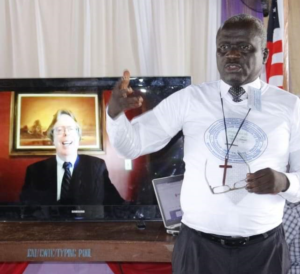Tagged: “reconciliation”
In an intimate relationship, how can one rebuild trust after the other shattered that trust?
Once you have walked the path of forgiving, I recommend an attempt at reconciliation. One can slowly rebuild trust with what I call the 3 R’s of remorse, repentance, and recompense. Remorse is an inner sorrow. Is the other genuinely sorry for what happened? Repentance is words that express remorse. Has the person genuinely apologized, truly meaning it (and you usually can tell a phony repentance from a sincere one by seeing the other’s emotions). Recompense is trying to make up for what happened, within reason. Has the other tried to change so that the injustices now are minimized or even eliminated? It can take time to see that recompense is occurring on a consistent level, but as you see this more stable change, trust can begin to emerge.
Sorry for being so blunt, but it seems to me that forgiving is an act of slavery to the ones who behave badly. It gives the unintended message that I am too soft in my response to the one who hurt me. What do you think?
I think you are equating forgiving and automatically reconciling without asking anything of the one who hurt you. As you forgive, you can and should ask for fairness.
Liberia Seeks Peace Through Forgiveness

Forgiveness Education class at Mother Tegeste Stewart Apostolic Pentecostal School in Brewerville, Monrovia, Liberia.
Bishop Brown has been working with IFI co-founder Dr. Robert Enright to implement elementary and secondary school Forgiveness Education initiatives (including for all 500 students at the Mother Tegeste Stewart Apostolic Pentecostal School in Brewerville), after-school forgiveness education clubs, and Sunday School forgiveness lessons. Since 2017, Group Forgiveness interventions also have been incorporated into the LFEP thanks to Bishop Brown’s significant role in governmental affairs.
“I suggested that approach, in all humility, because dialogue will not be fruitful if those engaging in the dialogue are still very angry about past grievances,” Dr. Enright explained. “Forgiveness is a scientifically-supported way of eliminating that anger.”
- Can Group Forgiveness In Liberia Lead to Peace?
- A New Strategy for Peace in the World. . . The Enright Forgiveness Inventory
- First Ebola, Now Coronavirus: Liberia Suffers Again
I seem to be lost on the forgiveness path. I try and try, but I do not think I have made much progress in forgiving my partner and this has been going on for about a year. Should I just get off the forgiveness path regarding my forgiving him?
Before you give up, I have some questions for you:
1) Have you committed to doing no harm to your partner, even in the context of your having the opportunity to somehow hurt him? If you answered, “Yes, I have committed to doing no harm,” then you are not lost on the forgiveness journey. This is a big step in the process;
2) Have you tried to see his weaknesses, his confusions, his wounds that may have wounded you? If not, perhaps you need to do some of this cognitive work, to see him in a wider perspective than only his injuries toward you;
3) Do you think that your will is strong enough to do the work outlined in #1 and 2 above? If so, that work could lead to your forgiving if you give this time.
So, what do you think? Have you found your way back onto the path of forgiveness?
How do I know, with some degree of confidence, that I am ready to reconcile with the other person?
Reconciliation is different from forgiveness. When we reconcile, this is a process of two or more people coming together again in mutual trust. Reconciliation is conditional on the other person’s willingness to change, if he or she was the one who acted unfairly. Forgiveness, in contrast, can be offered unconditionally to the other as a form of respect, understanding, compassion, and even love, even if there is no reconciliation. So, you can forgive without reconciling.
With all of this as background, here are four questions which might help you decide if you are ready to reconcile (and I am presuming that the other is the one who has hurt you):
1) Has the other shown an inner sorrow about what he or she did? We call this remorse;
2) Has the person verbally expressed this sorrow to you. We call this repentance;
3) Has the person made amends for what happened (and we have to ask if he or she has done so within reason because sometimes we cannot make full amends. For example, if someone stole $1,000 from you but truly cannot repay it all, then you cannot expect that he or she can make amends in any perfect way). We call this recompense;
4) If the person has shown what I call the “three R’s” of remorse, repentance, and recompense, then do you have even a little trust in your heart toward the person? If so, then perhaps you can begin a slow reconciliation, taking small steps in rebuilding the relationship. Your answer to these four questions may help you with your question: How do I know that I now am ready to reconcile?




